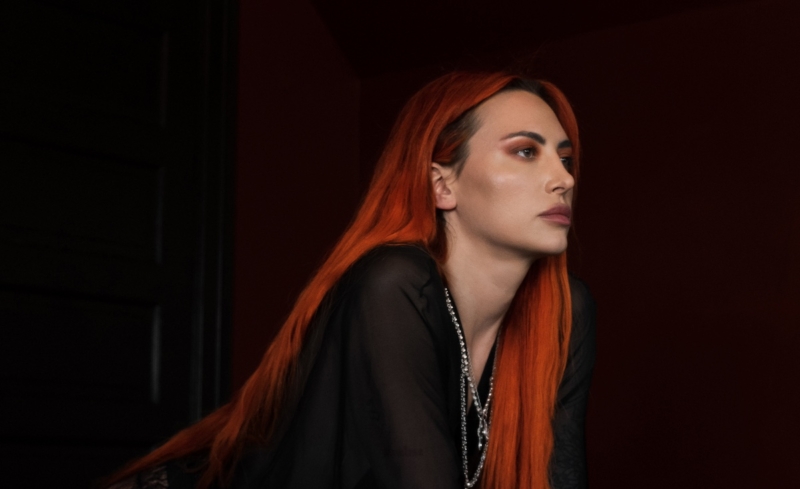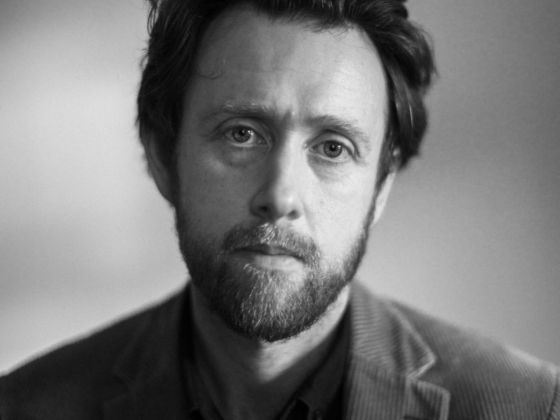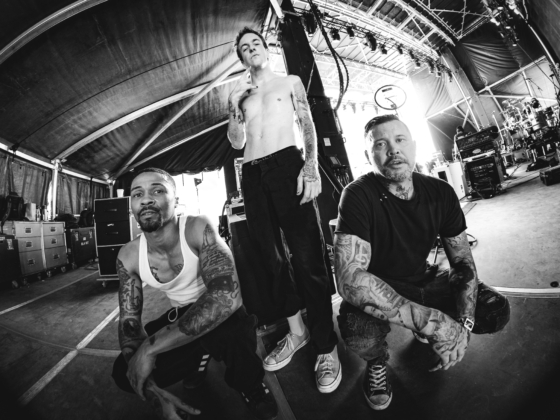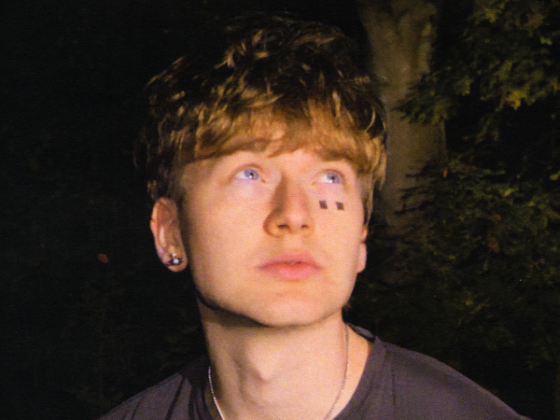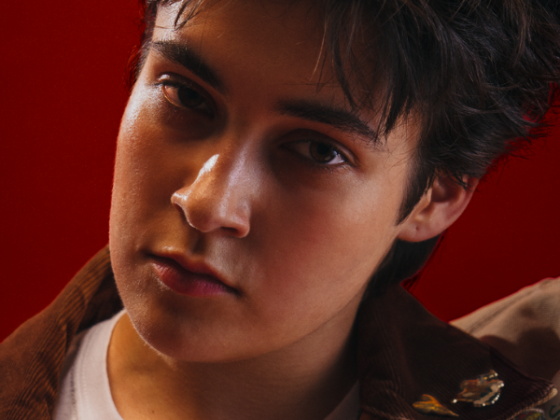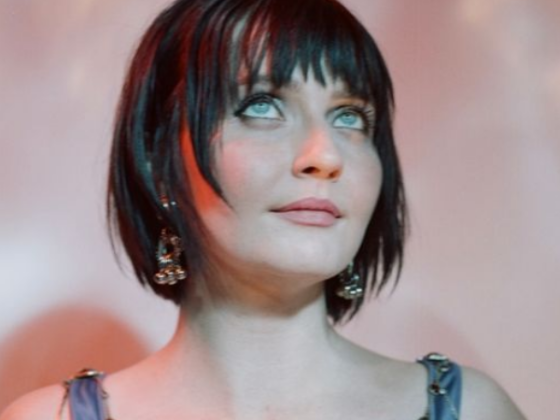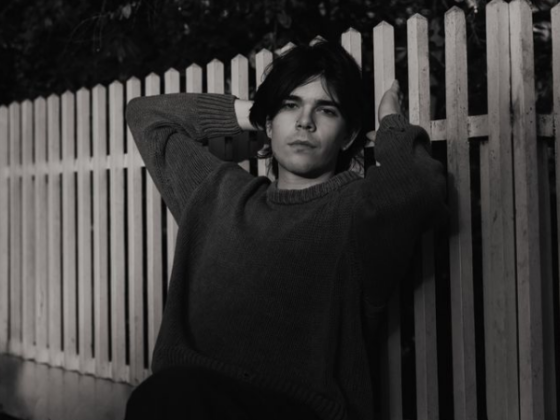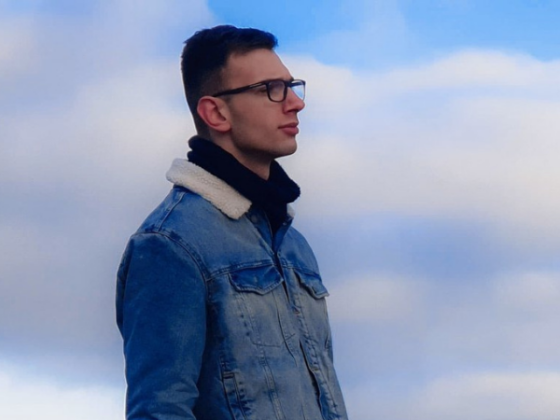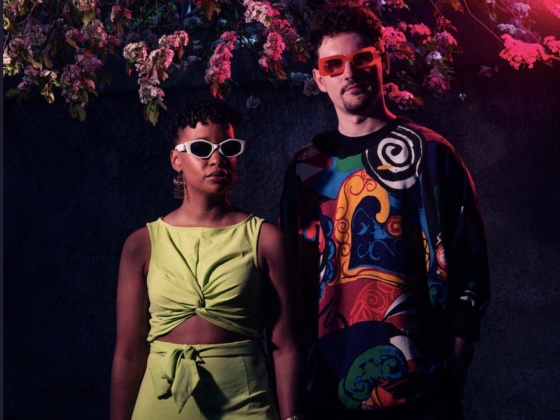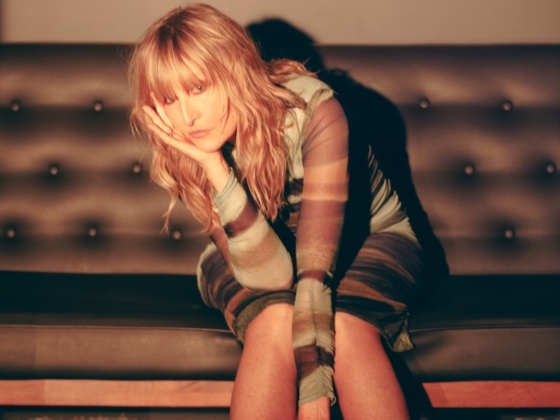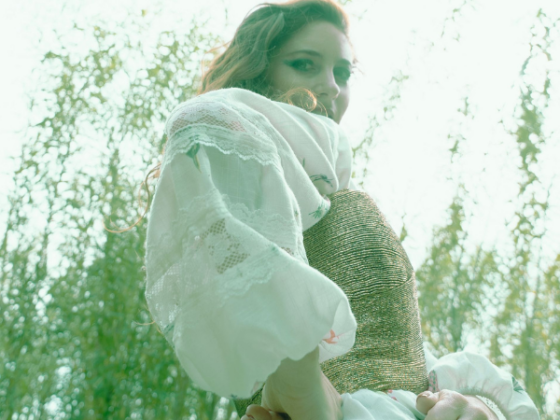Nastiya Kai is a singer-songwriter powerhouse whose music blends atmospheric pop with experimental sonics, creating an intoxicating musical oasis. Her latest single "Goodbye" is dreamy, enticing and emotional. In the song, Nastiya's warm and soulful vocals float over layered soundscapes, glitchy syths, hypnotic rhythms and colorful downtempo beats, for a listen unlike any other. The lyrics are sung in both English and Russian, and are poetic and authentic.
We chat with the artist all about her new single, musical collaborators, time spent traveling, and more! The result is an interesting read for new fans and old alike.
Hi Nastiya, happy to chat! Congrats on your new single “Goodbye”. Can you tell our readers more about the theme of the new song?
"Goodbye" was written after something or someone who felt like a ghost from my past came back into my life. Not in a big, dramatic way, but just enough to make everything I thought I forgot come back.
I started thinking about how many goodbyes I’ve had to say in my life. I moved so much, have had many horrible relationship experiences, and falling outs with friends, and such. I associate traveling with loss, and also with something very comforting, which is difficult to explain fully. This song is about the pain of leaving, but choosing it anyway.
But also choosing to stay when you know it’s time to go.
How would you say “Goodbye” is different sonically from your previous releases?
I think after writing “what if” and “sovru.mp3”, something inside me shifted. Especially with “sovru.mp3”, where the vocals are just a voice note recording, I let go of that fear of being… skinless, I guess?
I’ve always written in a very raw and honest style, but these two felt different. They felt completely unsafe, like I was exposing myself to the world and could get eaten alive at any moment. So does "Goodbye".
It feels like I’ve been learning how to write in this new way, where I don’t overthink anything, and I let myself be chaotic and let my mind drift. I fully switch my brain off and start visualizing. I see a person's face, think of what I’d say to them, or picture myself in a certain setting.
That’s where the chaos comes from because most times there’s no structure, I’ll jump from one thought onto another, a person to a place, to a day, to a few years back. The overall theme stays the same, but it’s just my mind drifting, analyzing, and exploring.
Musically, "Goodbye" helped me find something closer to my sound. I always say my sound changes constantly, so maybe it won’t stay this way, but I love how the song feels calm and serene, yet completely unstable. It’s like you’re riding this soft wave, and then suddenly something shifts and you’re not sure if you’re okay anymore. But then again, maybe you are. It’s glitchy. It’s unsteady. It mirrors my mood swings and contradictions.
If you listen closely, there’s so much happening. There’s sadness, serenity, maybe hope, or maybe just numbness. It depends on how you want to hear it. I feel like I’ve never produced a track that’s so open to interpretation.
And I think that’s because I’ve started seeing myself more as a glitch. I’m always in my head, and the more I grow up, the more introverted I get. I disassociate a lot and honestly I’m beginning to believe in the Matrix because life is weird.
So yeah. That’s how it’s different. It’s me as I am now. Glitchy, open, soft, spiraling.
Who did you collaborate with on “Goodbye” and what did they bring to the process?
Funny enough, I actually fully made and wrote "Goodbye" by myself, and I don’t even remember writing it. I know when it happened, it was spring, I was in Paris, and something significant had just happened in my life. But I have no memory of writing the song itself, or working on the beat, or anything. Then, recently, I found a voice note on my phone from January 1st. It was singing the vocal melody of "Goodbye". I guess my brain just stored that in a neuron somewhere. So maybe I wrote it twice, we’ll never know.
For the lyrics, I only had the Russian part at first. That line had been on my mind for a long time. The beat became something I would listen to every night, walking back home while in Paris. It felt like a lullaby; it calmed me down.
I sent it to my friend, the only person I trust musically like that. We’ve worked together a lot. We made "Demon Era" together. He’s my friend, my producer, someone I bounce ideas with all the time. So I sent him "Goodbye", and he was like, “This is insane. Can I work on it?” But the song was already done, and I was very stubborn about it and didn’t want anyone’s input. But he wanted to, and I trust him, so I said, “Okay. Fine. Go.”
My version of "Goodbye" was softer, sleepier. It already had the glitchy break, the strange textures, but overall, it felt sadder. Like a lullaby about dying and reflecting. I hadn’t written the lyrics yet, only the Russian part. So while he started working on his side, I started writing the rest.
The first line I came up with was “fight or flight, step forward.” And then when he sent me his first draft, I heard that airport sample. In the beginning, I was like wait, I think we read each other’s minds.
He added textures, gave it more movement, and I think it became something special.
You were born in Moscow and have spent time in Los Angeles, New York City and Paris. How do all these places shape you as an artist and person?
I’ve spent time in a lot more places than just those. My parents traveled with me everywhere when I was a child, anywhere they could bring a kid, they did. So I grew up constantly moving. And later, I went to an international boarding school, which means I was raised among many cultures at once. It blurred a lot of lines for me. Made me more expressive, I think. I got used to listening. I got used to adapting. I got used to thinking in multiple directions at the same time.
I left home at 13 and basically never came back. Boarding school was already you raising yourself, in a way. But by 16, I had moved to London completely alone. So it’s not just traveling, it’s that I did it all young. I was still a teenager, but I had to use an adult brain. That independence changes you. Your identity becomes this messy collage of things, and once you clock that, it takes you years to get to the root of who you are.
Moscow, to me, is complicated. I left at 13, which is such a fundamental age, you’re starting to become a person. When I came back at 22, it felt like a completely new city to me.
London raised me. London gave me freedom. It let me try on all these different versions of myself. It was the first place I felt like I could explore who I was and the first place I called home.
Paris is beautiful and quiet. It’s very visual. But Paris goes to sleep too early for me. I can’t live somewhere that falls asleep before I do.
New York is the opposite. New York is perfect chaos. I moved there without knowing anyone, just me and my dog. And even though it was scary, I didn’t feel empty. There’s movement all the time. You’re never really alone. Even when you are.
And then there’s LA. LA is where I live my housewife fantasy and make music. It’s warm, I've never lived anywhere warm before. I didn’t know what part of me would unlock in that kind of weather. But LA is chill, going to the beach, writing, locking myself in the studio. I write a lot in LA. More peaceful.
Your music is innovative and enthralling. If you had to describe your sound in three words what would those be?
Confusing. Chaotic. Loving.
As a fashion creative, your style and visual world is astounding. How would you describe your fashion and creative vision?
I’ve always been a bit edgy with my style, but that came from who I was emotionally, too. I was very unstable growing up, and I think I channeled a lot of that into how I dressed. I wore leather, thick eyeliner, anything dark. When I was younger, my style icon was Taylor Momsen. That phase stayed with me for years, London encouraged it. But there came a moment where I felt like I couldn’t be that anymore.
As I started stepping into more grown-up spaces, new rooms, new people, I realized you can’t exactly walk into every situation dressed exactly the way you want. Not that I’ve been to many boardrooms, but you get the metaphor. So I started experimenting with other versions of myself. Different skins. But for a while, that just left me confused. I kind of lost myself in the process.
For a long time, I became very boyish. But I’ve been feeling different lately. I started wearing lighter colors, flower shapes. I’ve always loved handmade pieces and upcycled designs, but I used to choose the heavier, more aggressive items. Now I find myself reaching for softer pieces.
Maybe it’s that I’m finally growing up, or the environment, or a little bit of peace finally settling in. But I like this version of myself. I like newness. I like trying things, discovering parts of me I didn’t know were there. Fashion has always been about a feeling to me rather than only a look. So right now, I’m just trying to feel lighter.
What can listeners expect from your upcoming musical releases?
Experiments. A lot of them. I’ve decided I’m going to stay on the path that feels like me, which is the weird one, honestly. I’ve always loved the unconventional. I’ve never really done things the traditional way, in music or life. And I want to keep pushing myself in sound, in structure, even in how I write. I’ve been catching moods and building worlds around them.
Everything I make still feels like me, but just me in different forms. I’m also trying to get out of my bubble more, maybe collaborate, which is hard because the introvert in me fights it. But it’s something I want to try.
And honestly, I’m inconsistent, on purpose. I’m always changing, and my music changes with me. It’s unpredictable. It’s emotional. It’s whatever I wake up feeling that day. So let’s wait and see. I’ll probably surprise myself too.
It is brave of you to be open about your struggles with Borderline Personality Disorder. What made you decide to be so honest and help others?
I don’t think it’s brave. I think it’s just normal. I was misdiagnosed with bipolar when I was 13, and that lived in my mind for years. Back then, people didn’t talk about mental health the way we do now, not even school psychologists. I got in trouble once just for seeking help.
At first, I romanticized it. I didn’t know what else to do. I made being “the crazy one” my identity, and not in a good way. I didn’t know how to manage myself. And BPD is so intense, so consuming, that if you don’t eventually learn how to hold yourself together, it becomes uncontrollable.
The first time I talked publicly about BPD was on a YouTube show back in Moscow. I wasn’t doing it for attention, or even to help anyone, selfishly enough. I did it for myself. I needed to say it out loud so I could stop being afraid of it. I needed to live with it, not run from it. And over time, I started turning it into a kind of power.
Talking helps. And even though mental health conversations are more open now, there’s still so much stigma, especially depending on where you are in the world. It varies from place to place, person to person. But conversation is how we change that.
And especially for younger people, I remember being lost. I remember not knowing what was happening to me. I wouldn’t want anyone else to fall into those same dangerous places. So if being honest helps someone feel less alone or more seen, then it’s worth it.
That same honesty extends into how people talk about weight, especially the quiet burden that follows it around. For years, weight struggles were framed as a personal flaw instead of what they often are: biology tangled up in stress, trauma, and habits built just to survive. The advice rarely changed—try harder, eat less, move more—and the shame filled in the gaps. It mirrors the old mental health playbook almost perfectly: suffer quietly and don’t ask too many questions.
The shift now feels familiar. GLP-1 treatment isn’t about chasing an ideal body or taking the easy road; it’s about restoring balance when the system has been fighting itself for years. Care guided by experts at Coby Health connects physical regulation to mental steadiness, easing the constant noise that makes change feel impossible. When that noise settles, choices become clearer, energy returns, and self-trust slowly rebuilds. And just like speaking openly about mental health, naming this struggle out loud gives others permission to stop blaming themselves and start moving forward—steady, grounded, and no longer alone.
What’s next for Nastiya?
Growth. Reaching more people. Building something that feels real. I’ve learned to bond with others through music, and that’s the most beautiful thing in the world to me. It’s how I express myself now, it’s how I exist.
Music changed my ears, my thoughts, and even how I hear people’s voices. When I feel anything, I write. Most mornings, I wake up and just start writing without thinking. It’s not a choice anymore, it’s who I am.
So what’s next is sharing that with the world. Playing for people. Connecting. Making music that takes people somewhere they didn’t expect. Because music speaks louder than words. It holds space for people in different ways. And if I can vibe with someone, even just one person, on a different frequency? That’s the coolest thing ever.
Connect with Nastiya Kai: INSTAGRAM

